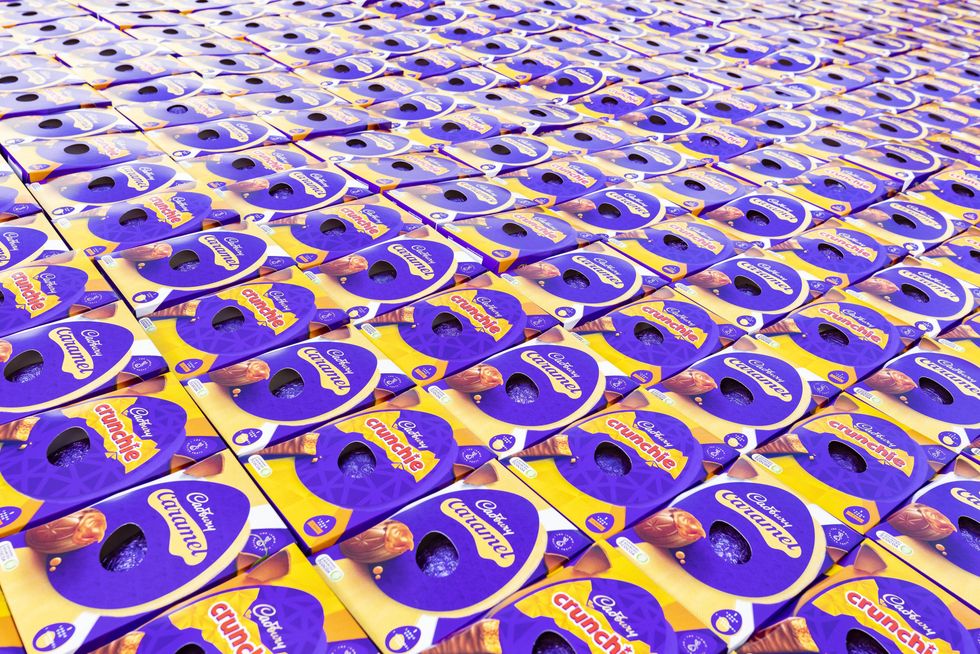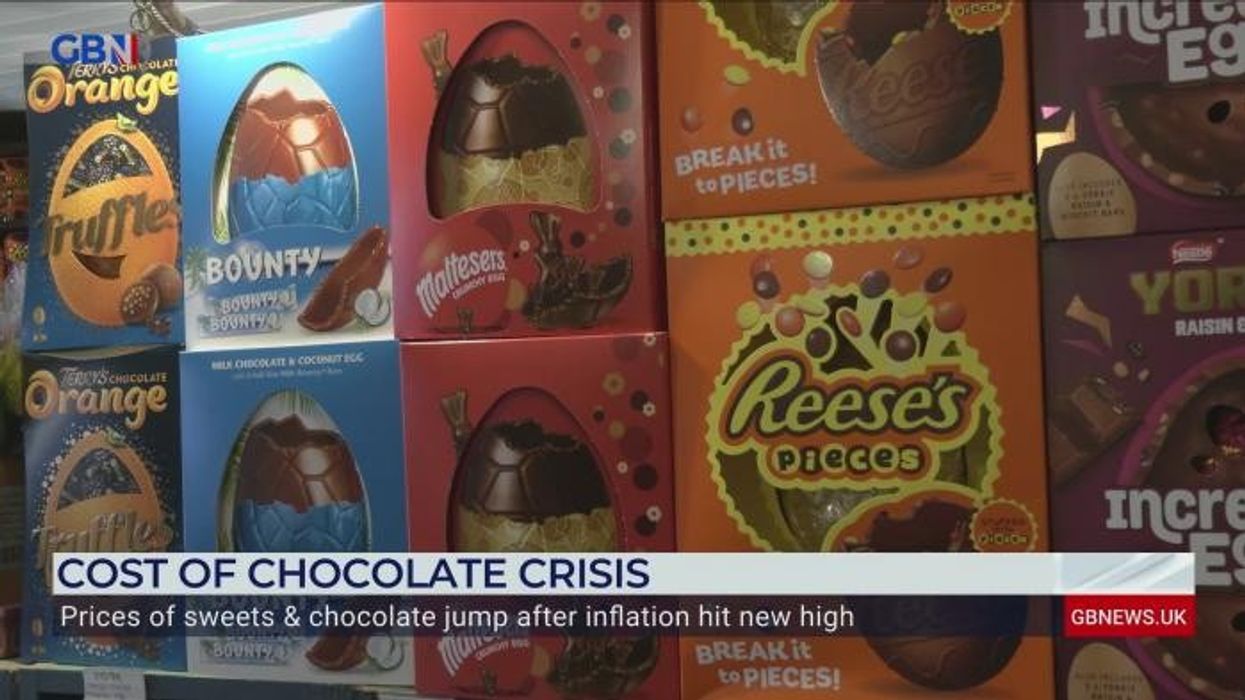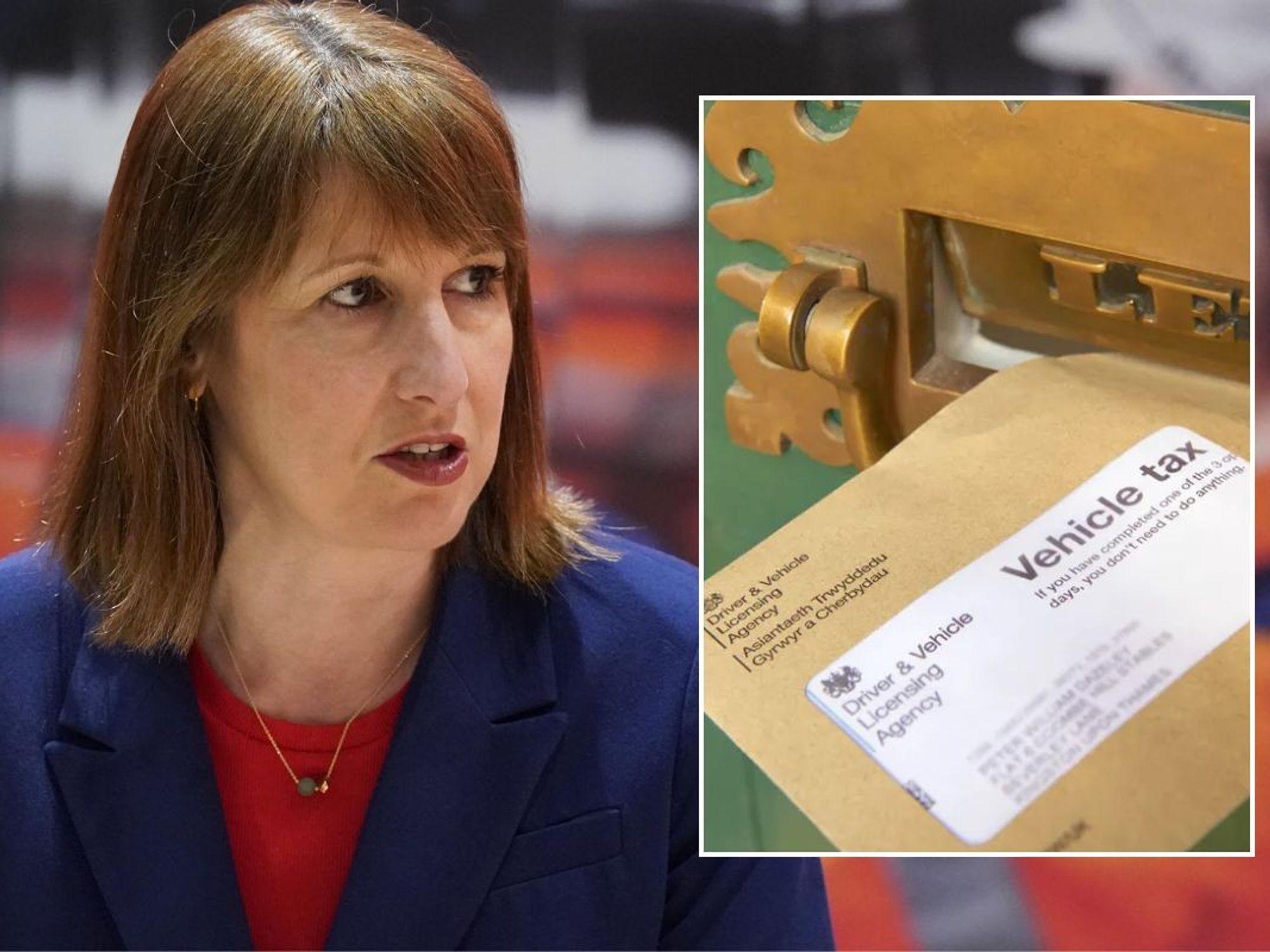Easter egg prices surge as Britons risk being priced out of seasonal chocolate treats
The price rises are being blamed on rising prices of butter, eggs and cocoa
Don't Miss
Most Read
Trending on GB News
A jump in the cost of sugar on markets is being blamed for the increase in price of chocolate eggs and hot cross buns ahead of Easter celebrations.
Statistics from global food markets show that the main ingredients of easter eggs – butter, eggs, cocoa and sugar – have surged in price since last summer, with sugar at a six-year high.
The British Retail Consortium (BRC), which represents most of the UK’s largest store chains, said consumers would be left with a “sour taste” if they expected chocolate Easter bunnies to be available at discount prices.
Confectionary company Cadbury has come under fire this year after the chocolate giant reduced the size of its eggs but retained the same price.

Cadbury has been criticised after the chocolate giant reduced the size of its eggs but retained the same price
PA
A bag of Cadbury Mini Eggs egg is now 97g, down from 130g while still at the price of £1.25.
And a medium Wispa Easter egg is 182.5g, down from 224g, and remains £3.
Cadbury’s chunky Dairy Milk egg, which weighs in at 400g now costs £12 on cadburygiftsdirect.co.uk.
Among the most expensive eggs is Lindor Blood Orange Easter Egg (260g) priced at £9 in Tesco and Guylian Milk Chocolate Egg (306g) which costs £10 from Morrisons.
The Consortium blamed the rising costs of raw materials and energy for the 12.4 per cent increase each year of “ambient” food in supermarkets.
Speaking on GB News, owner of Mr Simms Olde Sweet Shoppe Joseph Crouch said: “It’s really difficult to price match [easter eggs] in comparison to supermarkets when you’re an independent business. As in buying my easter eggs from my wholesaler, I’m better off buying them from them supermarkets, which just doesn’t make sense in business.
“So I just try and avoid the £2 easter egg, the £3 easter eggs because there’s just no money in it – it’s really tough.
“You would think when a customer comes in here, you’re going to a dedicated sweet shop, they would have the best prices but we don’t. It’s just supply and demand, when I phone up Cadburys and say I’d like to order 100 easter eggs and they go well we’ve got a big supermarket with 300-400 stores, they would just laugh at me.
“The prices of everything has skyrocketed, sugar has increased by 60 per cent, Toblerone have put their bars up by 42 per cent, which is a massive, massive jump and just can’t suck up all of it.”
Annual food inflation hit a record high of 15 per cent in March, according to BRC.
Fresh food prices also jumped more than last year, up 17 per cent from 16.4 per cent the year before.
While the spread of bird flu and rising energy costs are blamed for the jump in egg prices, poor harvests in Brazil and India last year – along with a decade of underinvestment – account for the shortage of sugar.
Prices increased following a drought in north Africa and Spain this winter as numbers of fresh fruit and vegetables were cut.
However, prices of sugar are likely to be temporary after a bumper harvest on Brazilian sugar plantations in recent months and a recovery in sugar beet yields on European farms.

Statistics from global food markets show that the main ingredients of easter eggs – butter, eggs, cocoa and sugar – have surged in price since last summer
PA
Helen Dickinson, chief executive of the BRC said: “As Easter approaches, the rising cost of sugar coupled with high manufacturing costs left some customers with a sour taste, as price rises for chocolate, sweets and fizzy drinks increased in March,” she said.
“Fruit and vegetable prices also rose as poor harvests in Europe and north Africa worsened availability, and imports became more expensive due to the weakening pound.”
Some economists have warned that businesses are using the rise in the global price of basic commodities as an excuse to boost prices.
But analysts argue that commodities such as sugar represent just a small proportion of the retail price, which depends more heavily on transport, warehousing and staff costs.









